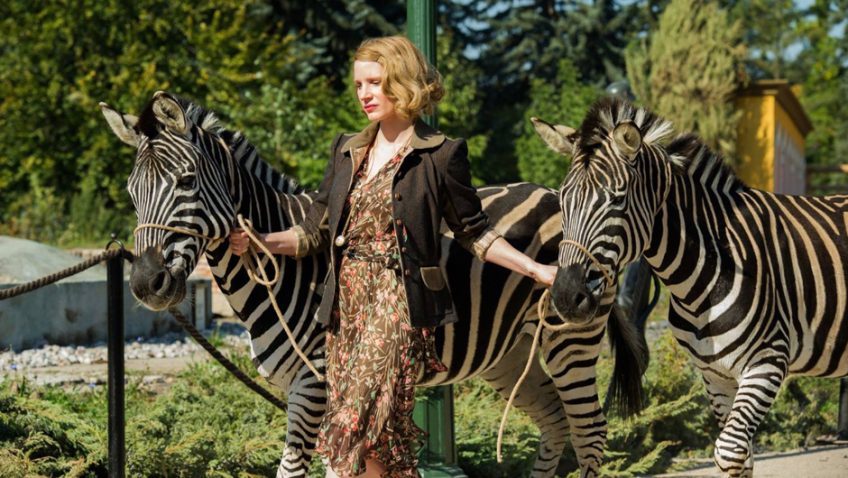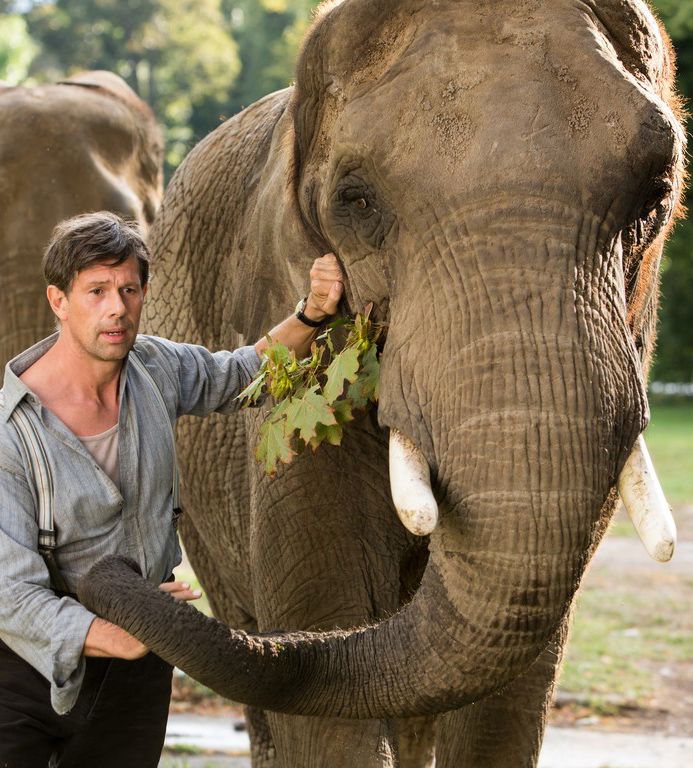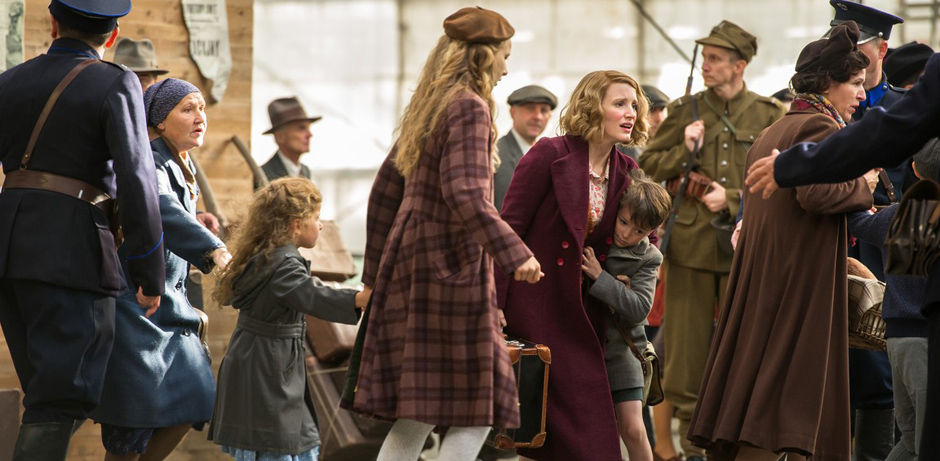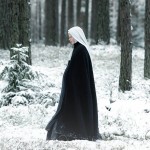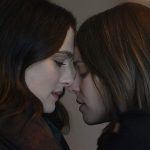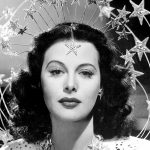Joyce Glasser reviews The Zookeeper’s Wife (April 21, 2017)
It is a rare week when there is a film written and directed by women. So this week should have been a cause for celebration because here are three films on general release that were directed by female directors and written by female scriptwriters. The celebrations will be muted, however for Their Finest, Unforgettable and The Zookeepers’ Wife proved disappointing. At least Zealander Niki Caro’s (The Whale Rider) The Zookeeper’s Wife tells an amazing true story about a couple who really deserve their Israeli honorific, Righteous Among the Nations.
The Zookeeper’s Wife
is based on Diane Ackerman’s non-fiction book of the same name
and on the diaries of Antonia Żabińska, published in 1968 but never, until Angela Workman’s (The War Bride) script has it been adapted for the cinema.
With a natural, uninhibited beauty Antonia Żabińska (Jessica Chastain) cycles through the Warsaw Zoo like it’s a branch of Disneyland, saying good morning to the animals and workers like she is Snow White greeting her seven dwarfs. Antonia spends a lot of the film weeping. She is the sensitive, compassionate sort, who puts the welfare of other people and animals above her own.
In a kind of foreshadowing, we see Antonia brave a nervous elephant’s cage to revive a calf that has stopped breathing. Back in the Żabińskas’ Bauhaus villa on the zoo grounds, wild animals nap on the big bed in Jan (Johan Heldenbergh) and Antonia’s airy bedroom along with their young son Ryszard (Tim Radford/then Val Maloku).
Jan Żabińska is director of the Warsaw Zoo and he and his wife are the proud owners of the zoo animals that they treat like pets. But on 1 September 1939 the family’s blissful existence is literally shattered forever by the German aerial bombardment of Warsaw that destroys much of the zoo and its animals. There is a heartbreaking shot of the helpless, traumatised surviving animals running through the streets while the dazed inhabitants who still have homes, look down from their windows.
Lutz Heck (Daniel Brühl), director of the Berlin Zoo, shares with his chum Hermann Göring, a desire to resurrect extinct purebred species, a kind of bestial Aryan race. He also has the hots for the lovely Antonia and stops by the zoo to use any surviving dispensible animals as target practice. The Żabińskas are in no position to argue with Heck when he informs them that he will be liquidating the zoo and moving the Żabińskas’ best animals to Berlin to ensure their survival. But in return, they persuade him to turn the zoo into a pig farm which they will run to supply food to the troops. In fact, though not dramatised in the film, Jan apparently poisoned the pork destined for the occupying forces.
The pig farm – and the underground passageways between the animal cages – is at the heart of Jan’s ingenious but perilous plan to save as many Jews in the Warsaw Ghetto as possible before they are deported to concentration camps.
The down side of a fairly sizeable budgeted American, as opposed to a Polish adaptation of the book and Antonia’s story is that everyone is speaking in English when there isn’t even one native English speaking character to justify it.
It’s a Euro-pudding, and even Chastain speaks with a phoney Russian/Polish accent that does nothing for her fidgety, weepy character’s credibility. Heck was, of course, German and so is Brühl, but you’d never know it as he speaks in perfect English but with a phoney accent that does not sound German, just deranged. When Heck pulls rank, bellowing ‘I am Hitler’s zoologist,’ there was actually laughter in the screening room. And is it because Belgian actor Johan Heldenbergh’s first feature film was another WWII feminist film entitled Antonia that he was hired?
There is no other reason, as the role calls for a stronger, more charismatic actor who can fill the screen, not remain invisible in the corner of it where Caro tends to place him. The real Jan was much more than a zoo director. He taught biology in the ghetto, spent three years smuggling out some 300 Jews who otherwise would have died (only 6% of Poland’s Jewish population survived the war) and was a lieutenant in the Polish resistance. There is scene toward the end of the film where we see Jan join in an armed rebellion for the first time. Since we had no idea that Jan was blowing up trains and stock piling guns in the zoo, it appears as though this fighting is a spontaneous and irresponsible decision, given the consequences for his family in the event he were shot or caught.
A little back story would have gone a long way here. We never find out how a Polish atheist like Jan and a Russian-born Catholic refugee whose family were slaughtered by the Bolsheviks ever met. And why, when the couple could have sat out the war relatively safely, did they put themselves at more risk than even Oskar Schindler? The film might be based on Antonia’s diaries, but it seems like it should be Jan’s movie. The title and the uneven casting lets us know that it is not, and the focus is on the fall-out of Jan’s heroism on the courageous earth mother at home.
Whether it’s because we remain distant from the characters, or because of the sheer monumentality of events, the film does not do justice to the true story. Caro and Workman create moments of tension but not enough to reflect the degree of risk and danger. Instead, they exaggerate the nature of Antonia’s relationship with Heck until it resembles a Jacobean drama, with Antonia holding the evil, lustful Lutz at bay while Jan becomes jealous. The poor man has enough to worry about without Antonia running off with a Nazi psychopath.
You can watch the film trailer here:

